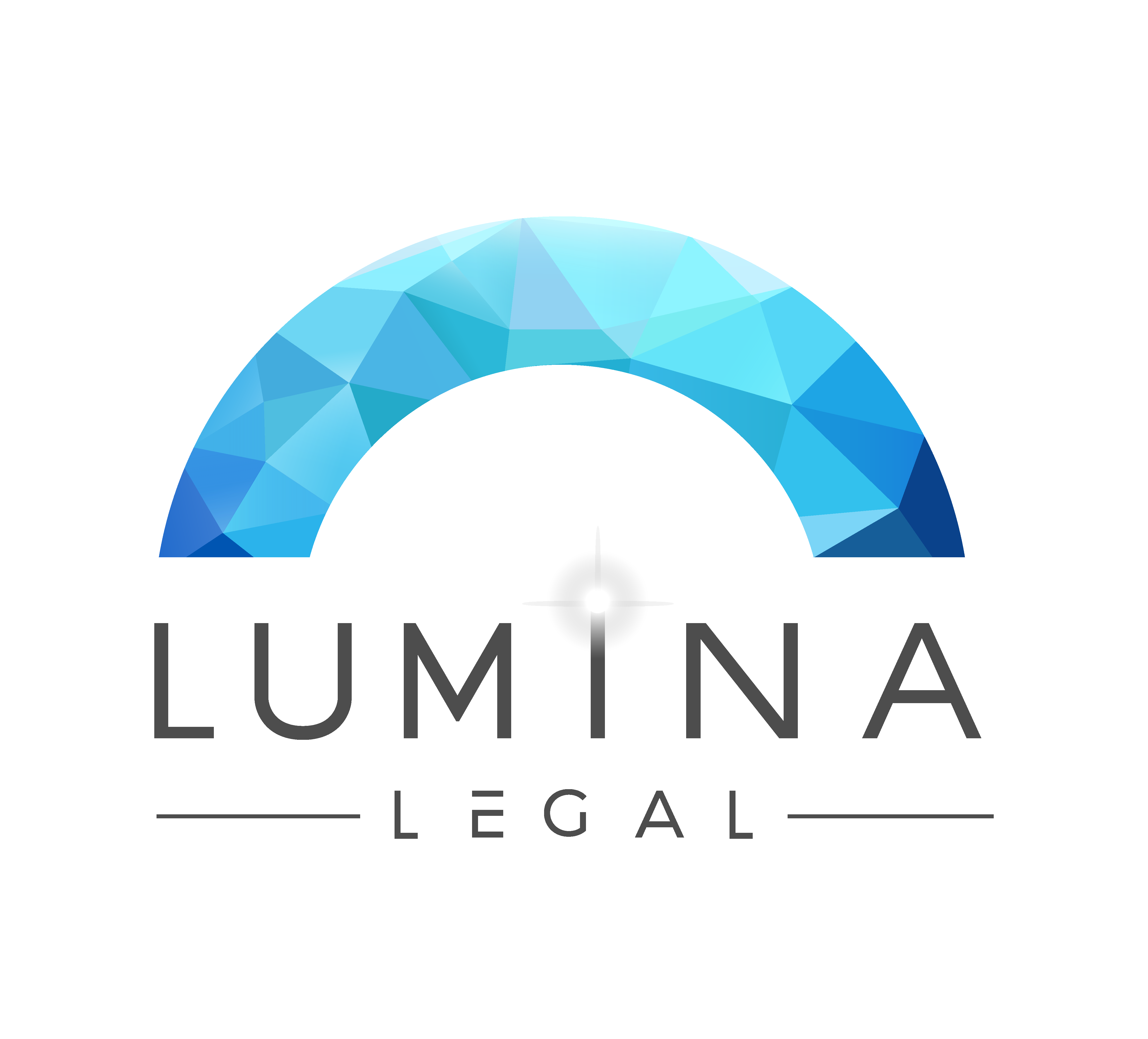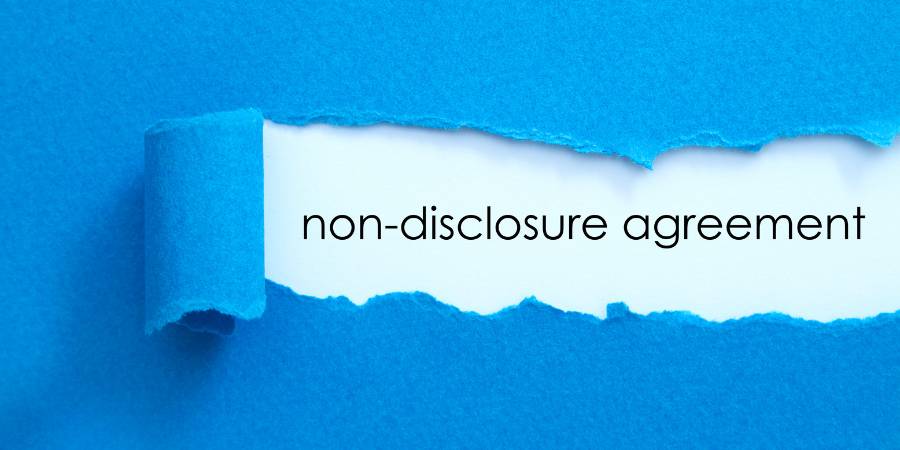
by LuminaAdmin | May 18, 2024 | Blog
Creating a comprehensive and effective professional services contract is crucial for establishing clear terms and minimizing potential conflicts. Whether you’re a service provider or a client, understanding the key elements of a well-crafted contract can help protect your interests and ensure smooth collaboration.
Avoiding Common Mistakes in Professional Services Contracts
Professional services contracts are fundamental to defining the relationship between parties, but common mistakes can lead to misunderstandings and disputes. Here are some pitfalls to avoid:
- Ambiguity: Ensure all terms are clearly defined to prevent misinterpretation.
- Incomplete Details: Cover all aspects of the agreement, including timelines, deliverables, and payment schedules.
- Lack of Specificity: Avoid vague language; be specific about responsibilities and expectations.
- Overlooking Legal Requirements: Ensure the contract complies with local laws and regulations.
By avoiding these common mistakes, you can create a more robust and enforceable professional services contract.
Setting Clear Expectations: Scope of Work and Deliverables
A well-defined scope of work is essential for setting clear expectations and preventing scope creep. Include the following elements:
- Project Description: Provide a detailed overview of the project objectives and deliverables.
- Responsibilities: Clearly outline the responsibilities of each party involved.
- Milestones: Establish key milestones and deadlines to track progress.
- Deliverables: Specify the expected deliverables, including any formats and standards required.
Defining the scope of work and deliverables helps both parties understand what is expected, reducing potential conflicts and ensuring successful project completion.
Payment Terms and Conditions: Ensuring Timely Compensation
Payment terms are a critical component of any professional services contract. Consider including these details:
- Fee Structure: Outline the payment structure, whether it’s hourly, fixed fee, or milestone-based.
- Payment Schedule: Specify when payments are due, such as upon invoice receipt, monthly, or after reaching milestones.
- Late Fees: Include any penalties for late payments to encourage timely compensation.
- Expense Reimbursement: Detail any reimbursable expenses and the process for submitting them.
Clearly defined payment terms and conditions facilitate smooth financial transactions and help maintain a positive working relationship.
Handling Disputes: Conflict Resolution and Arbitration Clauses
Despite the best efforts, disputes can still arise. Including conflict resolution mechanisms in your contract can help manage these situations effectively:
- Negotiation: Encourage initial dispute resolution through open communication and negotiation.
- Mediation: Include a clause for mediation, where a neutral third party helps resolve the conflict.
- Arbitration: Specify arbitration as a binding resolution method, avoiding lengthy court procedures.
- Governing Law: Indicate which jurisdiction’s laws will govern the contract.
Addressing dispute resolution in the contract helps both parties know how to proceed if conflicts occur, ensuring issues are handled efficiently and professionally.
In conclusion, creating an effective professional services contract involves avoiding common mistakes, setting clear expectations, defining payment terms, and including robust dispute resolution mechanisms. By paying attention to these key insights, you can establish a solid foundation for successful and harmonious professional relationships.
At Lumina Legal Services, we have extensive experience in drafting and reviewing professional services contracts. Contact us today for expert guidance on creating a contract that best protects your interests and clarifies expectations for all parties involved. So, don’t hesitate to reach out to us for your legal needs!

by LuminaAdmin | May 18, 2024 | Blog
When seeking legal representation, understanding the cost of hiring a lawyer is crucial for effective financial planning. The cost can vary significantly based on several factors. This blog post will provide an in-depth look at the key aspects influencing lawyer fees in Seattle, helping you make informed decisions.
Understanding the Basics: What Influences Lawyer Fees in Seattle?
Several factors influence how much a lawyer costs in Seattle, including:
- Experience and Reputation: Highly experienced and reputable lawyers typically charge more due to their proven track record and expertise.
- Practice Area: Different legal issues require different levels of expertise. For instance, complex business litigation might cost more than straightforward family law matters.
- Case Complexity: More complicated cases demand more time and resources, leading to higher fees.
- Location: While Seattle is generally an expensive city, legal fees can vary even within different neighborhoods or districts.
- Demand and Supply: High demand for certain types of legal services (e.g., tech industry-related issues) can drive up costs.
Understanding these factors can help you anticipate and budget for potential legal expenses.
Hourly Rates vs. Flat Fees: Breaking Down the Cost Structures
Lawyers commonly use two primary billing methods: hourly rates and flat fees.
Hourly Rates:
- Hourly Billing: Many lawyers charge by the hour. In Seattle, hourly rates can range from $150 to $500 or more, depending on the lawyer’s experience and the complexity of the case.
- Pros and Cons: Hourly billing is transparent, allowing you to see exactly where your money goes. However, costs can add up quickly, and it may be challenging to estimate the total expense upfront.
Flat Fees:
- Flat Fee Billing: For certain types of legal work, such as drafting a will or handling an uncontested divorce, lawyers may charge a flat fee.
- Pros and Cons: Flat fees provide predictability, as you know the total cost upfront. However, this method may not cover unexpected complications that arise during the case.
Retainer Agreements Explained: Prepaying for Legal Services
A retainer agreement is a common arrangement in legal services where a client pays an upfront fee to secure a lawyer’s services. Here’s how it works:
- Retainer Fee: The client pays an initial sum, often referred to as a retainer, which the lawyer deposits into a special account.
- Billing Against Retainer: As the lawyer works on the case, they bill their hourly rate against the retainer. Once the retainer is depleted, the client may need to replenish it.
- Benefits: Retainer agreements ensure that the lawyer is available to handle your case and provide ongoing legal support. They are particularly useful for businesses or individuals who require regular legal assistance.
Common Legal Services and Their Average Costs in Seattle
Understanding the average costs of common legal services can help you set realistic expectations. Here are some examples:
- Family Law: Handling issues like divorce, child custody, and support can range from $200 to $400 per hour. Uncontested divorces might have flat fees ranging from $1,500 to $3,000.
- Business Law: Services such as contract drafting, business formation, and litigation can cost between $250 and $500 per hour. Flat fees for forming an LLC or corporation might be around $1,000 to $2,500.
- Criminal Defense: Defending against criminal charges can range widely, with hourly rates from $200 to $500. Some cases might have flat fees, especially for straightforward matters like DUIs, costing between $2,500 and $10,000.
- Personal Injury: Personal injury lawyers often work on a contingency fee basis, charging a percentage (typically 30-40%) of the settlement or award. This means you only pay if you win the case.
- Estate Planning: Drafting wills, trusts, and estate plans can vary, with flat fees ranging from $800 to $3,000, depending on the complexity.
In conclusion, the cost of hiring a lawyer in Seattle depends on various factors, including the attorney’s experience, the complexity of the case, and the type of billing method used. By understanding these elements and the average costs of common legal services, you can better prepare for your legal expenses and choose the right attorney for your needs.
Lumina Legal prices
Lumina Legal employs a billable hour model for services where the time investment cannot be accurately predicted at the outset. This model is particularly suited for projects such as negotiation, litigation, and research. For these variable-length services, Lumina Legal meticulously tracks the time spent on each task and provides an invoice at the end of every month. The hourly rate for their attorneys is $300 per hour, ensuring that clients receive detailed and transparent billing for the legal assistance provided.

by LuminaAdmin | May 18, 2024 | Blog
When faced with legal challenges, finding the right attorney can make all the difference. Whether you need assistance with a business issue, family matter, or civil dispute, knowing how to find the best attorney near you in Seattle is crucial. This guide will walk you through the key factors to consider and how to leverage local expertise to your advantage.
Key Factors to Consider When Choosing an Attorney in Seattle
Choosing the right attorney is more than just picking the first name that appears in search results. Here are some critical factors to consider:
- Experience: Look for an attorney with extensive experience in the specific area of law relevant to your case. Experienced attorneys bring valuable insights and strategies that can make a significant impact on the outcome.
- Reputation: Reputation matters. Research potential attorneys to ensure they have a track record of success and positive client feedback. Professionalism, reliability, and dedication are vital attributes.
- Communication: Effective communication is key to a successful attorney-client relationship. Choose an attorney who listens to your concerns, explains legal terms clearly, and keeps you informed throughout the process.
- Fees and Costs: Understand the fee structure before making a decision. Some attorneys charge hourly rates, while others may work on a contingency basis or offer flat fees for specific services. Ensure you are comfortable with the financial arrangements.
Specialty Practices: Finding the Right Fit for Your Legal Needs
Different legal issues require different areas of expertise. It’s essential to find an attorney whose specialty aligns with your needs:
- Business Law: If you need help with contracts, mergers, intellectual property, or other business-related matters, look for an attorney specializing in business law.
- Family Law: For cases involving divorce, child custody, or adoption, seek out a family law attorney who understands the intricacies of these sensitive issues.
- Criminal Defense: If you’re facing criminal charges, a criminal defense attorney with experience in the local court system is crucial.
- Personal Injury: For injuries resulting from accidents or negligence, a personal injury attorney can help you pursue compensation.
The Importance of Local Expertise in Seattle’s Legal Scene
Local expertise can be a game-changer when dealing with legal matters. An attorney familiar with Seattle’s legal landscape brings several advantages:
- Knowledge of Local Laws: Local attorneys are well-versed in state and city-specific laws and regulations, ensuring your case is handled in compliance with local statutes.
- Familiarity with Courts: Attorneys who regularly practice in Seattle’s courts build relationships with judges, clerks, and other legal professionals, which can be beneficial for your case.
- Community Connections: Local attorneys often have connections within the community that can provide additional resources and support.
How to Utilize Online Reviews and Testimonials Effectively
In the digital age, online reviews and testimonials are valuable tools for evaluating potential attorneys. Here’s how to use them effectively:
- Read Multiple Sources: Don’t rely solely on one website. Check multiple review platforms such as Google, Avvo, and Yelp to get a comprehensive view of an attorney’s reputation.
- Look for Patterns: Pay attention to recurring themes in reviews. Consistent praise for communication skills or professionalism is a good sign, while repeated complaints about responsiveness might be a red flag.
- Consider the Context: Remember that every case is unique, and not all negative reviews reflect the attorney’s overall capability. Assess the context of any criticism and weigh it against positive feedback.
- Ask for References: Don’t hesitate to ask the attorney for references from past clients. Speaking directly to former clients can provide deeper insights into the attorney’s strengths and weaknesses.
Finding the best attorney near you in Seattle doesn’t have to be overwhelming. By considering these key factors, seeking the right specialty, valuing local expertise, and utilizing online reviews effectively, you can make an informed decision and secure the legal representation that best fits your needs. Whether you’re dealing with a complex business dispute or a personal legal matter, the right attorney can provide the guidance and support necessary for a favorable outcome.
At Lumina Legal Services, our team of experienced attorneys is dedicated to helping clients in the Seattle area with a wide range of legal matters. Contact us today for a consultation and let us be your guide in finding the best attorney for your case. So remember, when it comes to choosing an attorney near you in Seattle, do your research and consider all factors before making a decision. With the right attorney by your side, you can navigate any legal challenge with confidence and peace of mind.

by LuminaAdmin | May 18, 2024 | Blog
In today’s competitive business landscape, the importance of having a skilled legal advisor cannot be overstated. Good business lawyers play an essential role in not just managing legal risks but also in driving corporate success. This blog post explores the multifaceted contributions of good business lawyers and how they can elevate your company to new heights.
Understanding the Role of Good Business Lawyers in Corporate Success
Good business lawyers are invaluable partners in your entrepreneurial journey. Their role extends far beyond handling legal disputes; they are strategic advisors who contribute to the overall success of your company. Here’s how:
- Legal Compliance: Ensuring that your business complies with all relevant laws and regulations.
- Contract Management: Drafting, reviewing, and negotiating contracts to secure favorable terms.
- Corporate Governance: Advising on best practices for management and operational structures.
- Dispute Resolution: Representing your business in legal disputes and working towards beneficial outcomes.
- Strategic Advice: Providing insights that align with your business goals and objectives.
Navigating Legal Complexities: The Value of Expertise
The legal landscape is intricate and ever-changing. Good business lawyers bring a wealth of expertise that helps you navigate these complexities efficiently. They offer:
- Regulatory Knowledge: Keeping up-to-date with the latest laws and regulations affecting your industry.
- Specialized Skills: Offering specialized knowledge in areas such as intellectual property, employment law, and tax law.
- Problem-Solving: Identifying potential legal issues before they arise and providing solutions to avoid them.
- Documentation: Ensuring that all legal documents are thorough, precise, and enforceable.
Protecting Your Assets: How Good Lawyers Safeguard Your Business
One of the most critical roles of good business lawyers is asset protection. They implement strategies to safeguard your business assets, including:
- Intellectual Property Protection: Securing trademarks, patents, and copyrights to protect your innovations.
- Risk Management: Identifying potential liabilities and implementing measures to mitigate them.
- Contractual Safeguards: Including clauses in contracts that protect your interests and reduce exposure to risks.
- Compliance Programs: Developing compliance programs to ensure adherence to regulatory requirements and avoid penalties.
Facilitating Growth: Legal Strategies for Expansion
Growth and expansion come with their legal challenges. Good business lawyers provide the legal framework necessary for smooth and successful growth. They assist with:
- Business Structuring: Advising on the most advantageous business structure for expansion.
- Mergers and Acquisitions: Handling the legal aspects of mergers, acquisitions, and partnerships.
- Funding: Assisting with securing investment and financing, ensuring all agreements favor the business.
- Market Entry: Navigating the legal requirements for entering new markets, both domestically and internationally.
Mitigating Risks: The Importance of Proactive Legal Advice
Proactive legal advice is crucial in identifying and mitigating risks before they become significant problems. Good business lawyers offer:
- Risk Assessments: Conducting comprehensive risk assessments to identify potential vulnerabilities.
- Preventative Measures: Implementing policies and procedures to minimize legal risks.
- Training and Education: Providing training sessions to employees on compliance and risk management.
- Ongoing Support: Offering continuous legal support to address emerging issues promptly.
In conclusion, good business lawyers are not just legal advisors; they are strategic partners who contribute to the long-term success and sustainability of your company. Whether it’s navigating legal complexities, protecting assets, facilitating growth, or mitigating risks, their expertise and proactive approach ensure that your business is well-positioned to thrive in a competitive market. Investing in good legal counsel is an investment in the future of your business.
At Lumina Legal, we understand the critical role of good business lawyers in elevating your company. Our team of experienced attorneys offers comprehensive legal services tailored to meet the unique needs of businesses. Contact us today to learn how we can help take your company to new heights. So, never underestimate the value of a good business lawyer and make them an integral part of your corporate strategy for success.

by LuminaAdmin | May 18, 2024 | Blog
In the dynamic world of entrepreneurship, having the right legal support can make all the difference. A business lawyer in Seattle plays a crucial role in guiding small and medium-sized businesses through the complexities of legal requirements, ensuring they are well-positioned for growth and success. This blog post explores the various ways a business lawyer contributes to nurturing entrepreneurial ventures.
Key Legal Considerations for Small to Medium-Sized Businesses
Starting and running a business involves navigating a myriad of legal considerations. From choosing the right business structure to complying with local, state, and federal regulations, a business lawyer ensures that every legal aspect is addressed. For small to medium-sized businesses, this includes:
- Business Formation: Deciding whether to operate as a sole proprietorship, partnership, LLC, or corporation.
- Licensing and Permits: Ensuring all necessary licenses and permits are obtained and maintained.
- Employment Law: Drafting employment contracts, understanding labor laws, and implementing workplace policies.
- Intellectual Property: Protecting trademarks, patents, and copyrights to safeguard business assets.
- Contracts: Creating and reviewing contracts to minimize risks and ensure favorable terms.
Protecting Your Business: Understanding Integration Clauses
Integration clauses are vital components of business contracts. They stipulate that the written contract is the complete and final agreement between the parties, superseding all prior negotiations and agreements. Understanding and including integration clauses in your contracts can protect your business by:
- Preventing Disputes: Clarifying that all terms are contained within the contract, reducing the potential for disagreements over oral statements or informal agreements.
- Ensuring Clarity: Providing a clear and unambiguous record of the agreement, which can be crucial in resolving any disputes.
- Maintaining Control: Allowing businesses to control the terms of the contract and prevent modifications without mutual consent.
A business lawyer can help draft and review contracts to ensure that integration clauses are effectively included, thus providing an additional layer of protection for your business.
Starting a Business with Friends: Legal Insights and Best Practices
Starting a business with friends can be an exciting venture, but it also comes with unique challenges. To ensure that the friendship and business relationship remain intact, it’s essential to establish clear legal foundations:
- Partnership Agreements: Clearly define roles, responsibilities, profit-sharing, and decision-making processes.
- Dispute Resolution: Include mechanisms for resolving conflicts amicably without damaging personal relationships.
- Exit Strategies: Plan for potential scenarios where one partner wants to leave the business, ensuring a smooth transition.
- Ownership Stakes: Determine and legally document ownership percentages to avoid future misunderstandings.
A business lawyer can facilitate these discussions and draft agreements that protect both the business and personal relationships, setting the venture up for long-term success.
Why You Need a Business Lawyer
Having a business lawyer is not just about addressing legal issues as they arise; it’s about proactive planning and risk management. A business lawyer can offer:
- Expert Advice: Providing insights into complex legal matters and regulatory changes.
- Risk Mitigation: Identifying potential legal risks and implementing strategies to minimize them.
- Contract Management: Ensuring all business contracts are fair, enforceable, and in the best interest of the business.
- Dispute Resolution: Representing the business in legal disputes and working towards favorable outcomes.
- Growth Support: Assisting with mergers, acquisitions, and other strategic decisions to support business expansion.
In conclusion, a business lawyer in Seattle is an invaluable asset for entrepreneurs. By addressing key legal considerations, protecting business interests through integration clauses, and offering guidance on starting a business with friends, a business lawyer ensures that entrepreneurial ventures are built on solid legal foundations. Investing in legal expertise not only safeguards the business but also paves the way for sustainable growth and success.
At Lumina Legal , we specialize in providing comprehensive legal services to small and medium-sized businesses. Contact us today to learn more about how our team of experienced business lawyers can support your entrepreneurial journey.

by LuminaAdmin | May 15, 2024 | Blog
In the realm of business, safeguarding confidential information is paramount. A simple non-disclosure agreement (NDA) serves as the first line of defense in protecting sensitive data from being disclosed to unauthorized parties. Whether you’re a startup navigating through initial negotiations or an established business entering into new partnerships, understanding the basics of NDAs is essential. This guide will walk you through the fundamental aspects of non-disclosure agreements, ensuring you have the knowledge needed to protect your intellectual assets effectively.
Understanding the Three Essential Functions of an NDA
An NDA, at its core, performs three vital functions: protection of sensitive information, clarification of which information is considered confidential, and the stipulation of penalties for breach of the agreement. This segment will break down each function, providing a clear understanding of how NDAs serve to safeguard your business’s most valuable information. By comprehensively outlining these functions, businesses can appreciate the critical role NDAs play in maintaining confidentiality and trust between parties.
Key Elements of Non-disclosure Agreements: A Complete Guide
Non-disclosure agreements may vary in complexity, but all should contain several key elements to ensure they are effective and enforceable. This section details the essential components of an NDA, including definitions of confidential information, the scope of the obligation of confidentiality, the exclusions from confidential treatment, and the term of the agreement. Understanding these elements is crucial for anyone drafting or entering into an NDA, as they form the agreement’s legal backbone.
Drafting a Non-Disclosure Agreement: Five Key Features to Include
Crafting an effective NDA requires careful consideration of various features to ensure comprehensive protection of your information. This part of the guide highlights five key features to include when drafting your non-disclosure agreement, such as specificity in the description of confidential information, obligations of the receiving party, and terms of disclosure. Including these features will enhance the legal robustness of your NDA, minimizing potential risks and ambiguities.
Lumina Legal: We Can Help You with Your Simple Non-Disclosure Agreement
Navigating the nuances of non-disclosure agreements can be challenging without expert guidance. Lumina Legal specializes in assisting businesses with drafting and reviewing NDAs, ensuring that your confidential information receives the highest level of protection. Whether you’re establishing a new partnership or engaging in strategic discussions, our team is here to support your needs in creating a simple yet effective non-disclosure agreement. Trust us to safeguard your business interests with precision and professionalism.
Understanding and implementing a simple non-disclosure agreement is a critical step in the protection of your business’s confidential information. From grasping the essential functions of an NDA to recognizing the key elements and drafting a robust agreement, this guide provides the foundational knowledge needed to secure your intellectual property effectively. With specialized assistance from Lumina Legal, you can confidently navigate the complexities of non-disclosure agreements, ensuring your business’s sensitive data remains protected at all times.







Recent Comments